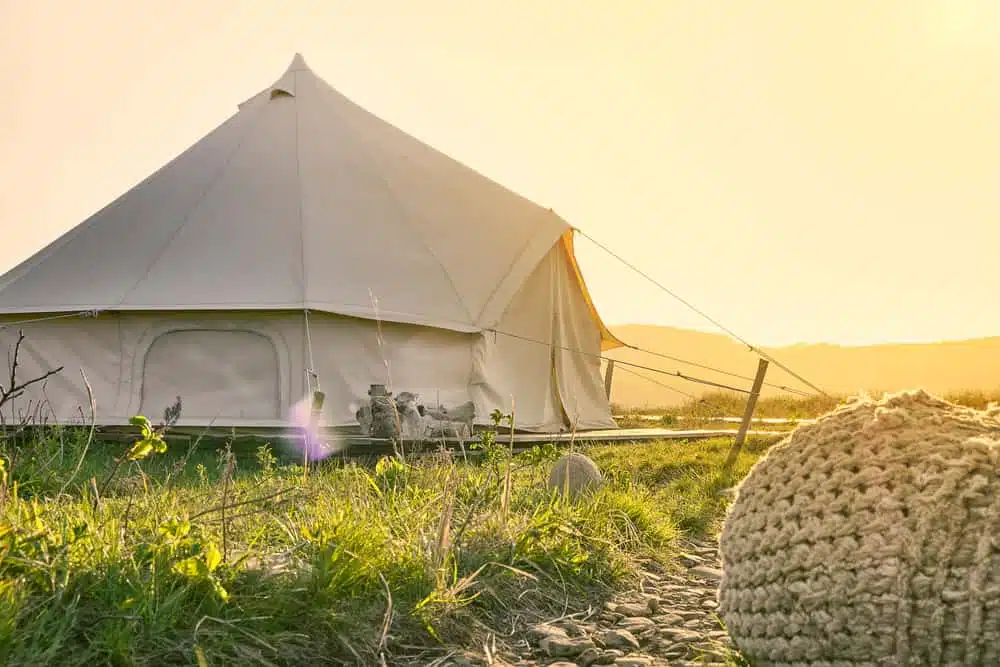The San Bernardino County Planning Commission denied without prejudice a proposed glamping project in the Flamingo Heights area in California.
The commission did not move to approve or deny the project, so it was denied by default. However, the project owners may come back to the commission in the future seeking approval.
The proposed project by RoBott Land Company aimed to establish a 75-site resort in Flamingo Heights.
The site was to include three types of camping structures, including two types of yurts and teepee-like tents, a 10,000 square-foot restaurant, an art barn, a bar, a pool, a yoga deck, fire pits, and a heli-pad for emergency use only. The plan initially included a venue for music festivals, but developers removed it from their application.
Since the project was introduced to the public, several members of the community have spoken out against it, citing concerns about the environment, traffic, noise, and more.
One of the main concerns was the environmental impact the project would have on the area, which is noted as a wildlife corridor by the Mojave Desert Land Trust.
The site is home to thousands of western Joshua Trees, and the project would have required the relocation of 43 of them.
It is also historically home to the protected desert tortoise, although none were found during a study done on the site.
The MDLT strongly suggested that the project be moved to a site with already disturbed land, or that the county require a full environmental report before granting the permit.
Other concerns brought up by local residents were the zoning, traffic, and highway regulations.
The project site is zoned for rural living, which allows for campgrounds, but residents argued that campgrounds do not typically include large restaurants and the other amenities included in the project. They said those would be more appropriate for commercial zoning.
The proposed site is also adjacent to Highway 247, which is under consideration for scenic highway status by Caltrans.
If approved, developments along the highway would have to follow specific regulations to maintain the view.
After hearing from many members of the local community, the planning commissioners heard from the developers, who said that several of these concerns could be addressed after the county approved their permit.
They would have to get approval from Caltrans, and the site would have to be reviewed for desert tortoises again before construction could begin.
However, commissioners still had concerns with the scale of the project in a rural living zone.
“One of the things I’m concerned about is this sort of seems like a commercial size,” said Commissioner Johnathan Weldy.
The developers can come back to the commission again asking for approval of the project, or can appeal to the county Board of Supervisors.
The denial of the 75-site glamping project in San Bernardino may provide valuable insights to the glamping industry on the importance of considering environmental impact, community concerns, and zoning regulations when proposing new projects.
The concerns raised by local residents and the Mojave Desert Land Trust about the environmental impact of the project, including the potential harm to wildlife, the Joshua Trees, and the desert tortoise, highlight the importance of conducting thorough environmental studies and addressing any concerns before moving forward with a new glamping project.
Moreover, the zoning regulations and community concerns raised by the Homestead Valley Community Council illustrate the importance of ensuring that the proposed glamping project aligns with the zoning regulations and the vision of the local community.
Therefore, the denial of the 75-site glamping project in San Bernardino serves as a reminder to the glamping industry that proposing new projects requires thorough consideration of environmental impact, community concerns, and zoning regulations to ensure that the proposed project is beneficial to all parties involved.


